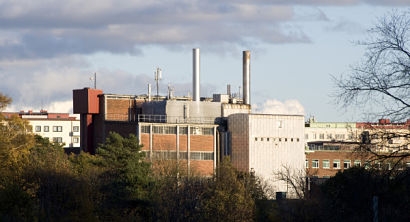
After ten years of energy research into the gasification of biomass, researchers at Sweden´s Chalmers University of Technology feel they have paved the way for radical changes in the energy industry, which could be applied to new installations, as well as be implemented at thousands of existing plants around the globe. The technology itself is not new, involving biomass converted into a gas at high temperatures. This gas can then be refined into end-products which are currently manufactured from oil and natural gas. The research team at Chalmers have now demonstrated that one possible end-product is biogas, which can replace natural gas in existing gas networks.
However, the process of implementing the transition from fossil fuels to renewables is a tricky issue for many industries, particularly heavy industries such as oil refineries or paper and pulp, where it is especially urgent to start moving given that the investment cycles are so long. At the same time, it is important to get the investment right because the task of transitioning to renewables may involve the replacement of boilers or facilities in advance, which means major financial costs.
Previously, the development of gasification technology has been hampered by major problems with tar being released from the biomass, which interferes with the process in several ways. Now, the researchers from Chalmers’ division of Energy Technology have shown that they can improve the quality of the biogas through chemical processes, and the tar can also be managed in completely new ways. This, in combination with a parallel development of heat-exchange materials, provides completely new possibilities for converting district heating boilers to biomass gasifiers.
“The potential is huge” said Henrik Thunman, Professor of Energy Technology at Chalmers University. “Using only the already existing Swedish energy plants, we could produce renewable fuels equivalent to 10 percent of the world's aviation fuel, if such a conversion were fully implemented. We rebuilt our own research boiler in this way in 2007, and now we have more than 200 man-years of research to back us up. Combined with industrial-scale lessons learned at the GoBiGas (Gothenburg Biomass Gasification) demonstration project, launched in 2014, it is now possible for us to say that the technology is ready for the world.”
Martin Seemann, Associate Professor in Energy Technology at Chalmers, added that it will be possible to modify existing boilers, which can then supplement heat and power production with the production of fossil-free fuels and chemicals.
The plants which could be converted to gasification are power and district heating plants, paper and pulp mills, sawmills, oil refineries and petrochemical plants.
The Swedish Energy Agency has funded energy research and infrastructure at Chalmers for many years, but how much of this technological potential can be realised depends on the economic conditions of the coming years, and how that will affect the willingness of the industrial and energy sectors to convert. Biomass is a renewable resource, but only provided we do not deplete the conditions for its biological production. There is therefore a limit for total biomass output.
The International Energy Agency (IEA) will hold an international webinar about the industrial demonstration of the gasification technology on 20th June.
Image: The combustion boiler at Chalmers Power Central was converted to a gasifier in 2007. Since then, more than 200 man-years of research have been devoted to gasification technology.
For additional information:

